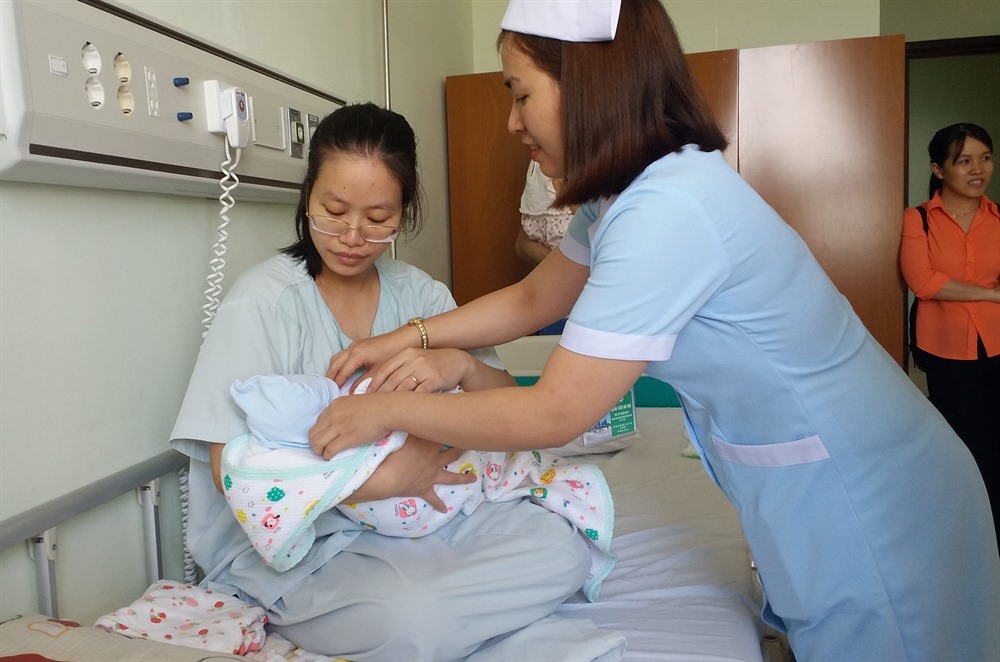 Society
Society

The southern coastal province of Bà Rịa-Vũng Tàu is facing a shortage of human resources in the public healthcare sector, especially specialists.
 |
| Bà Rịa-Vũng Tàu Province’s public healthcare sector faces a serious shortage of human resources, especially specialists. — VNA/VNS Photo Hoàng Nhị |
BÀ RỊA-VŨNG TÀU — The southern coastal province of Bà Rịa-Vũng Tàu is facing a shortage of human resources in the public healthcare sector, especially specialists.
The lack of doctors has greatly affected medical examination and treatment for patients at local hospitals and health facilities.
The province’s Mental Health Hospital has the most serious shortage of doctors.
Ngô Thành Phong, director of the hospital, said the hospital had recruited only one additional doctor since its establishment in 2006.
With 150 beds, the hospital’s 10 doctors treat 200-380 patients every day, while seven nurses are responsible for 200 inpatients.
The hospital manages and cares for more than 4,200 patients suffering from mental illness.
“Taking care of hundreds of sick people has put pressure on our staff and caused fatigue,” Phong said.
Lê Lợi Hospital in Vũng Tàu City with 420 beds is facing a shortage of 30 MD specialists in all faculties, mainly in the obstetrics department.
Last year, two doctors resigned, one transferred and four retired in the obstretrics department, but the hospital has nobody to replace them.
On some occasions, people who came to the hospital to give birth or were in need of emergency obstetric care had to be transfered to another hospital.
According to Hoàng Phước Ba, head of the hospital’s obstetrics department, the department has five specialists, including two new medical school graduates.
“The continuous shifts are tiring and stressful because the doctors don’t have much time to rest. If this situation continues for long, we may not be able to bear it,” he said.
Nguyễn Thanh Phước, director of Lê Lợi Hospital, said the provincial health department had transferred three obstetricians from medical centres in Xuyên Mộc District, Phú Mỹ Town and a provincial family planning centre to Lê Lợi Hospital.
“However, this was only a temporary solution,” he said.
According to Nguyễn Văn Lương, director of Phạm Hữu Chí Lung Disease Hospital, each year the province detects 1,500 people with tuberculosis (TB), including about 800 patients with pulmonary TB.
The hospital needs at least 12 more doctors to offer good services and treatment for patients.
The district hospitals and grassroots level healthcare facilities also suffer a shortage of doctors. Only 29 health clinics of a total of 84 clinics in the province now have doctors.
Faced with the same situation, Bà Rịa Hospital needs 43 more doctors.
According to many health facilities, support policies for doctors are insufficient. After working a long time at public health facilities, many skilled doctors and pharmacists move to private health facilities which pay higher salaries.
Moreover, the number of medical doctors who graduate each year does not meet demand, so recruitment is difficult.
Phạm Minh An, director of the provincial health department, said the health sector had asked the province’s government for more support policies to retain doctors, and preferential policies to encourage doctors to work in disadvantaged areas.
The health sector is working with medical and pharmacy universities and higher-level hospitals to conduct training and retraining of medical and pharmaceutical workers, especially programmes for postgraduates.
It is also continuing to implement support policies for doctors and pharmacists at universities. — VNS




